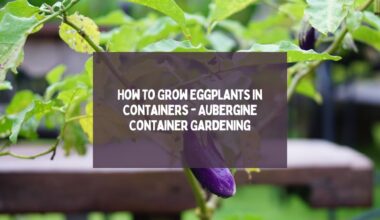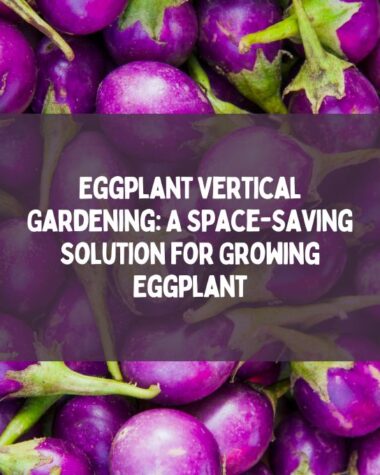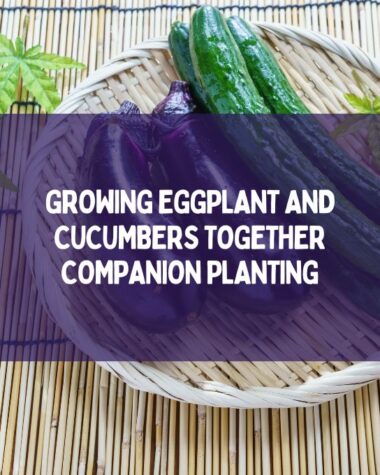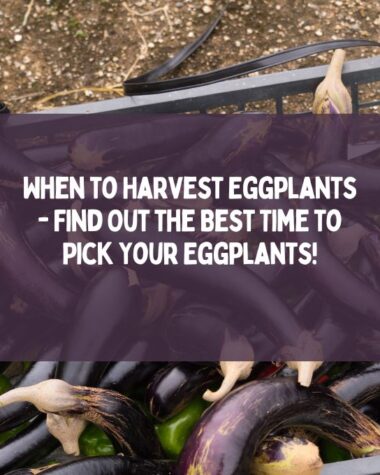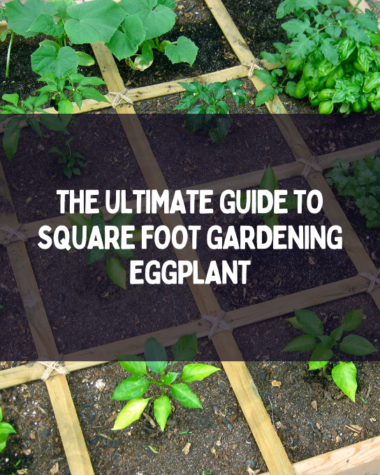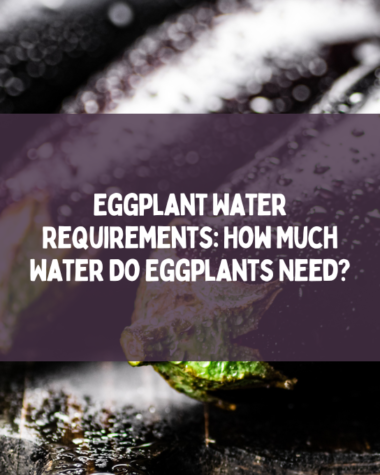Eggplants are one of the most popular vegetables grown in gardens across the world. They are easy to grow and offer a delicious flavor and texture that is hard to match.
Growing eggplants from seedlings is a great way to ensure a bountiful harvest, but it requires careful attention and proper care.
As a gardener, growing eggplants from seedlings is one of my favorite tasks. In this article, I will provide an all-in-one guide on how to plant and care for eggplant seedlings.
From choosing the right variety to harvesting and preserving, you will find everything you need to know to grow healthy and delicious eggplants in your garden.
How To Prepare for Planting Eggplant Seedlings?
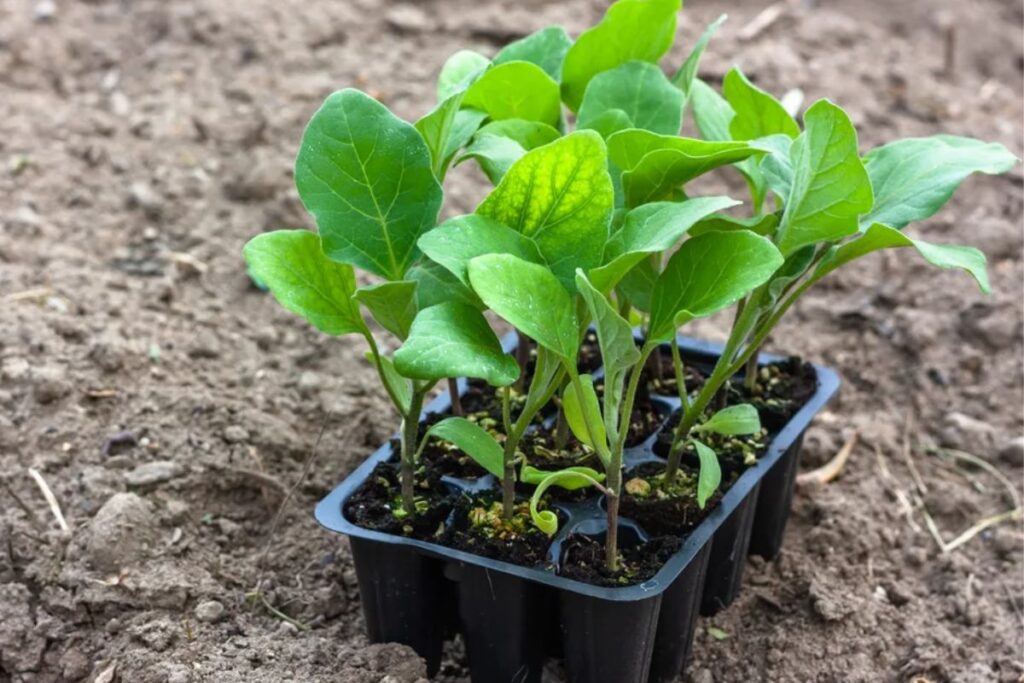
Preparing for planting eggplant seedlings is an important step to ensure a successful harvest. Whether you’re a seasoned gardener or a beginner, it’s essential to know the proper techniques and steps for preparing your soil, selecting the right location, and timing your planting.
Here’s a step-by-step on how to prepare for planting eggplant seedlings. Make sure to follow each step carefully as I’ve tested this strategy and doubled my eggplant crop.
Choosing the Right Variety of Eggplant Seeds
Before you start planting eggplant seedlings, it is important to choose the right variety. There are many different types of eggplants and eggplant seeds. Each comes with a unique flavor, texture, and size.
Some popular varieties include Black Beauty, Fairy Tale, and Listada de Gandia. Research the different types of aubergines or eggplants and choose the one that best suits your taste and garden’s conditions.
Preparing the Soil
Eggplants grow best in well-draining soil with a pH level between 6.0 and 7.0. To prepare your soil, add compost or aged manure to improve its fertility and structure. You can also add perlite or sand to improve drainage. Make sure to loosen the soil to a depth of at least 8 inches before planting.
Starting Seeds Indoors
Start your eggplant seedlings indoors about 6 to 8 weeks before the last expected frost in your area. Sow the seeds in the seed-starting mix in a tray or individual pots. Make sure to sow the eggplant seed one-fourth inch deep.
Keep the soil moist, but not overly wet, and place the tray or pots in a warm location. Eggplant seeds germinate best at a temperature between 20°C and 32°C.
Transplanting Eggplant Seedlings
When the seedlings have grown to a height of about 3 to 4 inches and have at least two sets of true leaves, they are ready for transplanting.
Make sure to harden off your seedlings for a week before transplanting them. This means gradually exposing them to outdoor conditions, such as sunlight and wind, to help them acclimate.
Choose a spot in your garden that receives at least 6 hours of sunlight a day and has well-draining soil. Dig a hole that is slightly larger than the root ball of your seedling and gently remove it from its pot. Place the seedling in the hole and fill it with soil. Water the seedling well to help it settle in.
Related Reading:
- Eggplant Vertical Gardening: A Space-Saving Solution for Growing Eggplant
- 10 Ways How To Make Tomato Plants Grow Faster
How To Care for Eggplant Seedlings?
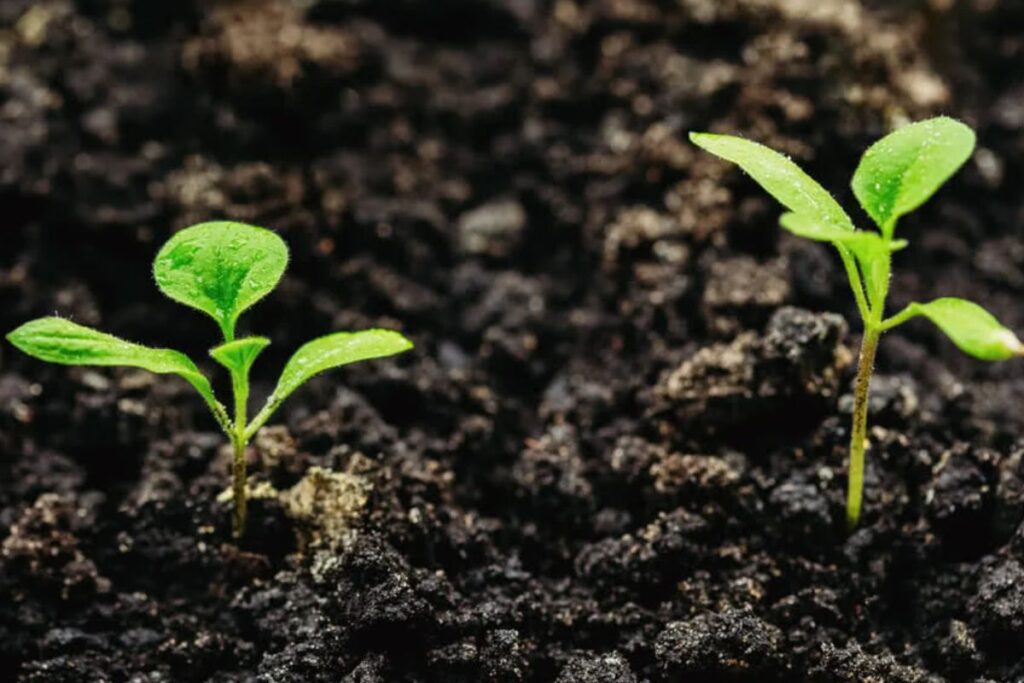
As a gardener, caring for eggplant seedlings is crucial to ensure that they grow healthy and strong. Eggplants are not only a delicious addition to any dish, but they are also packed with nutrients and health benefits. Proper care of your eggplant seedlings will help them to thrive and produce a bountiful harvest.
Follow these steps to care for your eggplant seedlings.
Watering
Eggplant seedlings need consistent moisture to grow well. Water your plants regularly, at least once a week, to keep the soil evenly moist. Avoid overwatering, which can cause root decay and other issues.
Fertilizing
Eggplant seedlings need regular fertilization to thrive. Use a balanced fertilizer, such as 10-10-10, every 3 to 4 weeks. Follow the manufacturer’s instructions on how much to use fertilizer for aubergine seedlings and how often to apply it.
Pruning
Prune your eggplant seedlings to help them produce more fruit and improve their overall health. Pinch off the top of the plant when it has grown to a height of about 18 inches. This will encourage the plant to bush out and produce more branches.
Remove any side shoots that grow below the first fruiting branch to help direct the plant’s energy toward fruit production.
Pest and Disease Control
Among other pests and diseases, verticillium wilt, flea beetles, and aphids can attack eggplants. Monitor your plants regularly for signs of problems and take action promptly if you notice anything amiss. Use organic pest and disease control methods whenever possible, such as neem oil or insecticidal soap.
How to Harvest and Store Eggplant Seedlings?
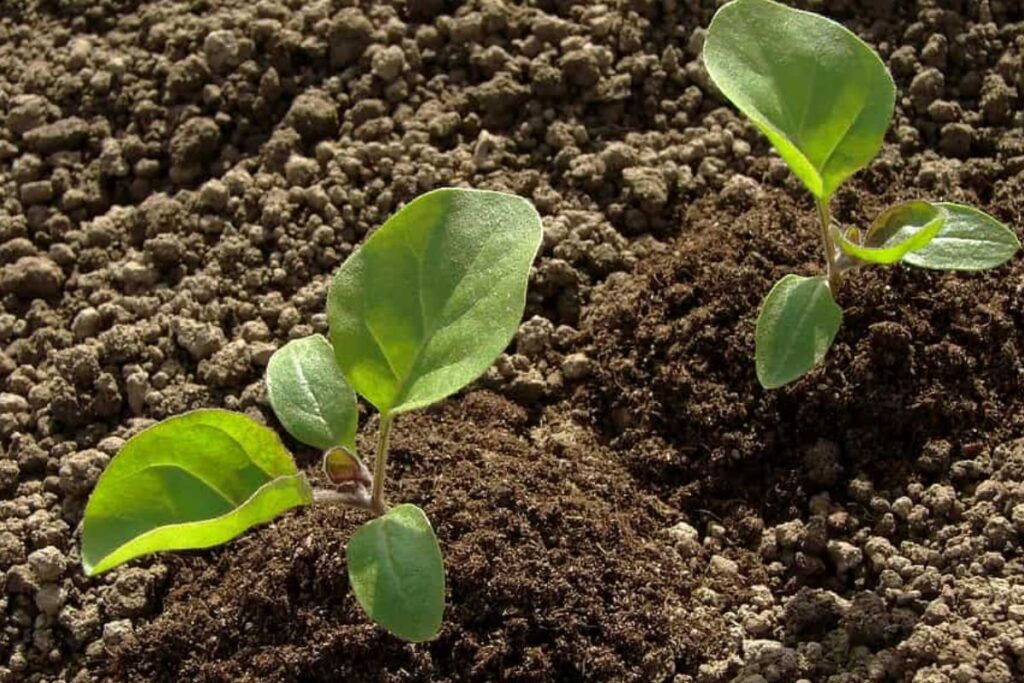
Properly harvesting and storing eggplant seedlings is important if you want to have a lot of this tasty vegetable for a long time. Knowing when and how to harvest them, as well as how to store them correctly, can make all the difference in the quality and flavor of your eggplants.
When to Harvest Eggplant Seedlings?
To get the most flavor and texture out of your eggplants, you should wait until they are fully grown before picking them. This means they should be glossy, firm, and have a uniform color. You can also test if an eggplant is ripe by gently pressing your thumb into the skin. Use a sharp knife or garden shears to avoid damaging the stem
Storing Eggplant Seedlings
- Ideal Storage Temperature: The ideal storage temperature for eggplants is between 20°C and 32°C, which is slightly warmer than most refrigerators. You can store them in the crisper drawer of your refrigerator or a cool, dark place in your kitchen.
- Avoiding Ethylene Gas: Avoid storing eggplants near fruits that release ethylene gas, like bananas, as this can cause your eggplants to ripen and spoil faster.
Remember to handle them gently and store them properly to ensure the best possible flavor and texture.
Related Reading:
- Growing Nantes Carrots: Tips And Techniques For A Bountiful Harvest
- When to Transplant Zucchini Seedlings? Let’s find out
- How To Grow Pumpkins – A Step-by-step Guide
Conclusion
Growing eggplant seedlings is a rewarding and easy task for any gardener. By following these tips, you can ensure that your eggplants grow healthy and produce a bountiful harvest.
Remember to choose the right variety, prepare your soil, start your seeds indoors, and care for your seedlings properly. With a little patience and care, you can enjoy delicious and nutritious eggplants from your garden.
